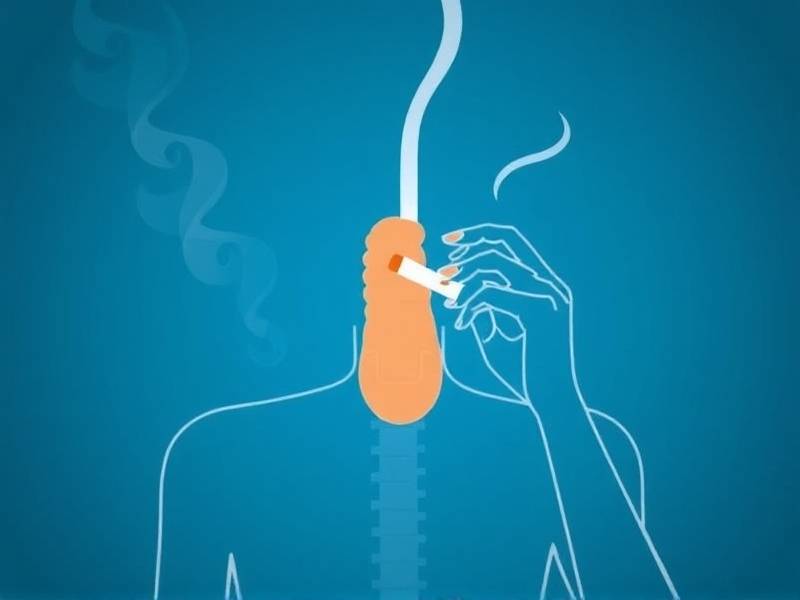Can Quitting Smoking Really Cause Hypothyroidism? A Comprehensive Guide
Can Quitting Smoking Really Cause Hypothyroidism? A Comprehensive Guide
Introduction: Quitting smoking is a significant step towards improving one's health, but it's not uncommon for individuals to experience various withdrawal symptoms. One such concern is the potential link between quitting smoking and the development of hypothyroidism. In this comprehensive guide, we will explore the relationship between these two conditions, shedding light on whether quitting smoking can truly cause hypothyroidism.
Understanding Hypothyroidism: Hypothyroidism is a condition where the thyroid gland does not produce enough thyroid hormone. This hormone plays a crucial role in regulating metabolism, growth, and development. When the levels of thyroid hormone are insufficient, it can lead to various symptoms such as fatigue, weight gain, depression, and cold intolerance.

The Link Between Quitting Smoking and Hypothyroidism: Research suggests that there may be a connection between quitting smoking and an increased risk of developing hypothyroidism. However, it is important to note that while there is a potential link, it does not mean that quitting smoking directly causes hypothyroidism in every individual.
-
Nicotine and Thyroid Function: Nicotine, found in tobacco products, has been found to have both stimulatory and inhibitory effects on the thyroid gland. While nicotine can stimulate the release of thyroid hormone temporarily, long-term exposure to nicotine can disrupt normal thyroid function.
-
Withdrawal Symptoms: When individuals quit smoking, they may experience withdrawal symptoms such as irritability, anxiety, and weight gain. These symptoms can sometimes mimic the signs of hypothyroidism like fatigue and weight gain.
-
Other Factors: It's important to consider other factors that may contribute to the development of hypothyroidism when quitting smoking. These factors include genetics, age, family history of thyroid disorders, and other lifestyle choices.
Diagnosis and Treatment: If you suspect that you may have developed hypothyroidism after quitting smoking or if you have symptoms that concern you, it is essential to consult with a healthcare professional for an accurate diagnosis.
Treatment for hypothyroidism typically involves hormone replacement therapy (HRT) with synthetic thyroid hormones like levothyroxine. The dosage will be determined based on your specific needs and monitored regularly by your healthcare provider.
Conclusion: While there is a potential link between quitting smoking and an increased risk of developing hypothyroidism, it is crucial to understand that this does not mean that quitting smoking directly causes hypothyroidism in everyone. If you are considering quitting smoking or already have quit and are experiencing symptoms resembling those of hypothyroidism, consult with a healthcare professional for proper evaluation and treatment.

Remember that quitting smoking offers numerous health benefits beyond just reducing the risk of hypothyroidism. Take control of your health today by seeking support from healthcare professionals who can guide you through the process safely and effectively.
